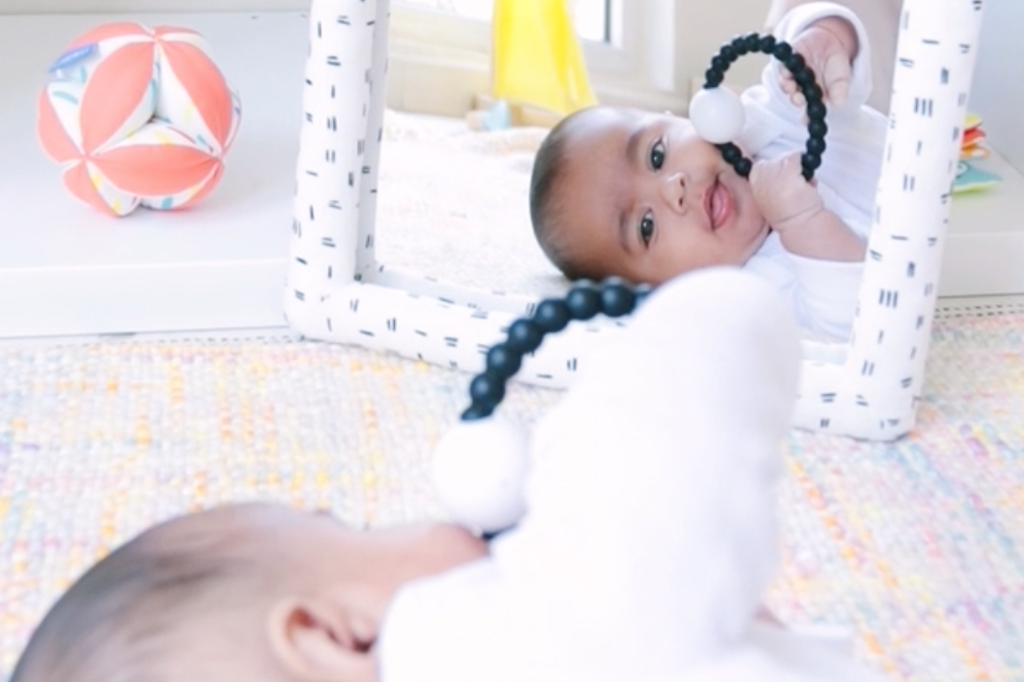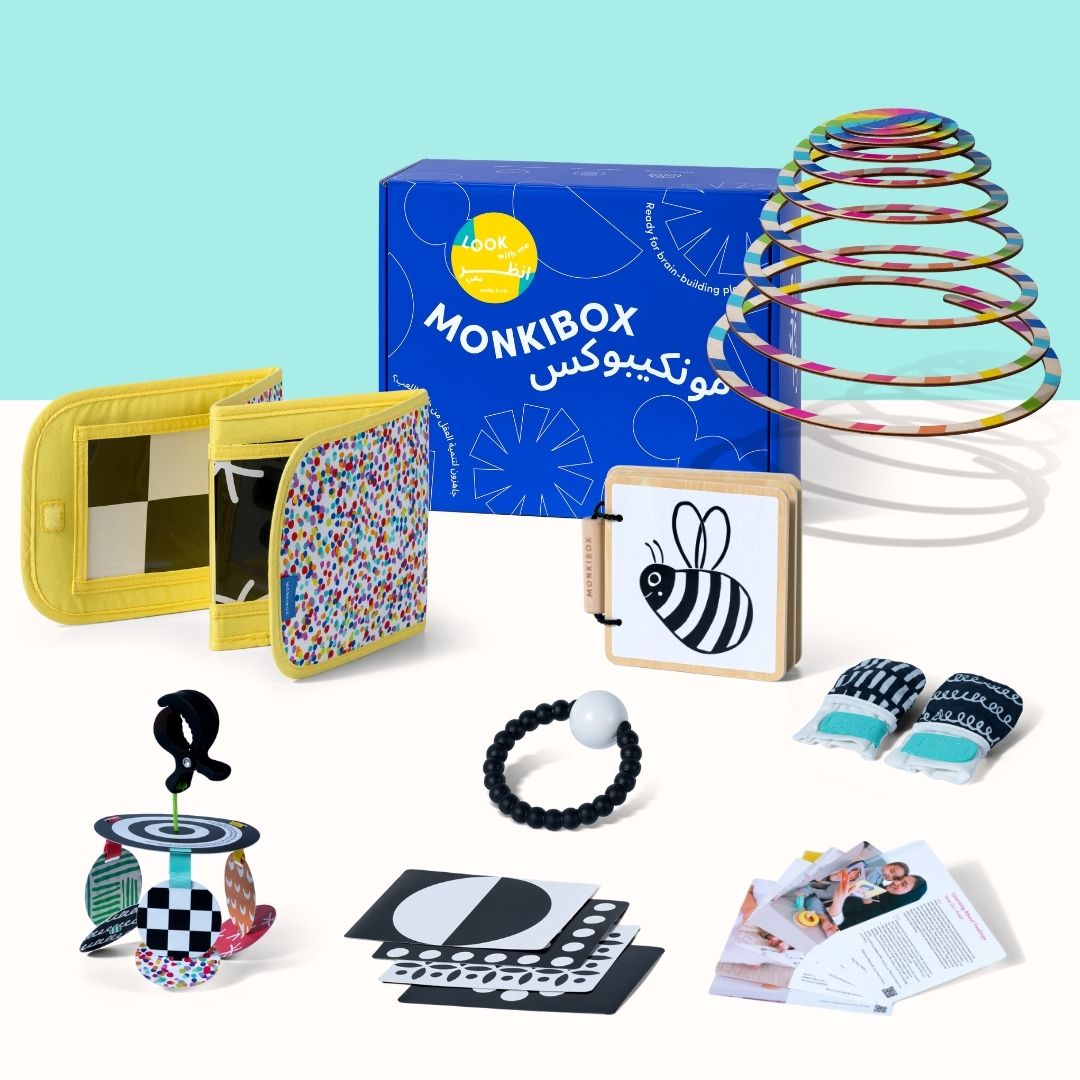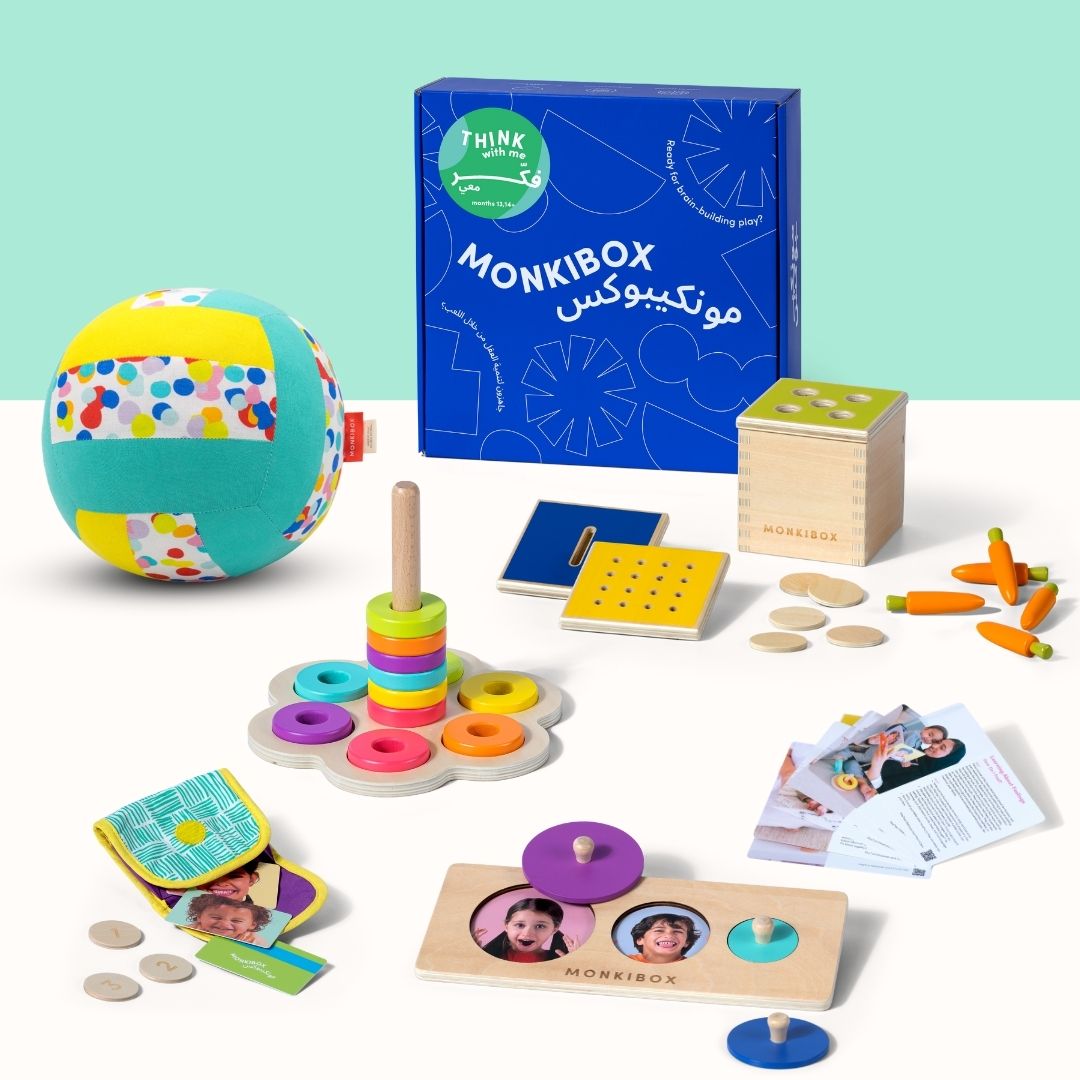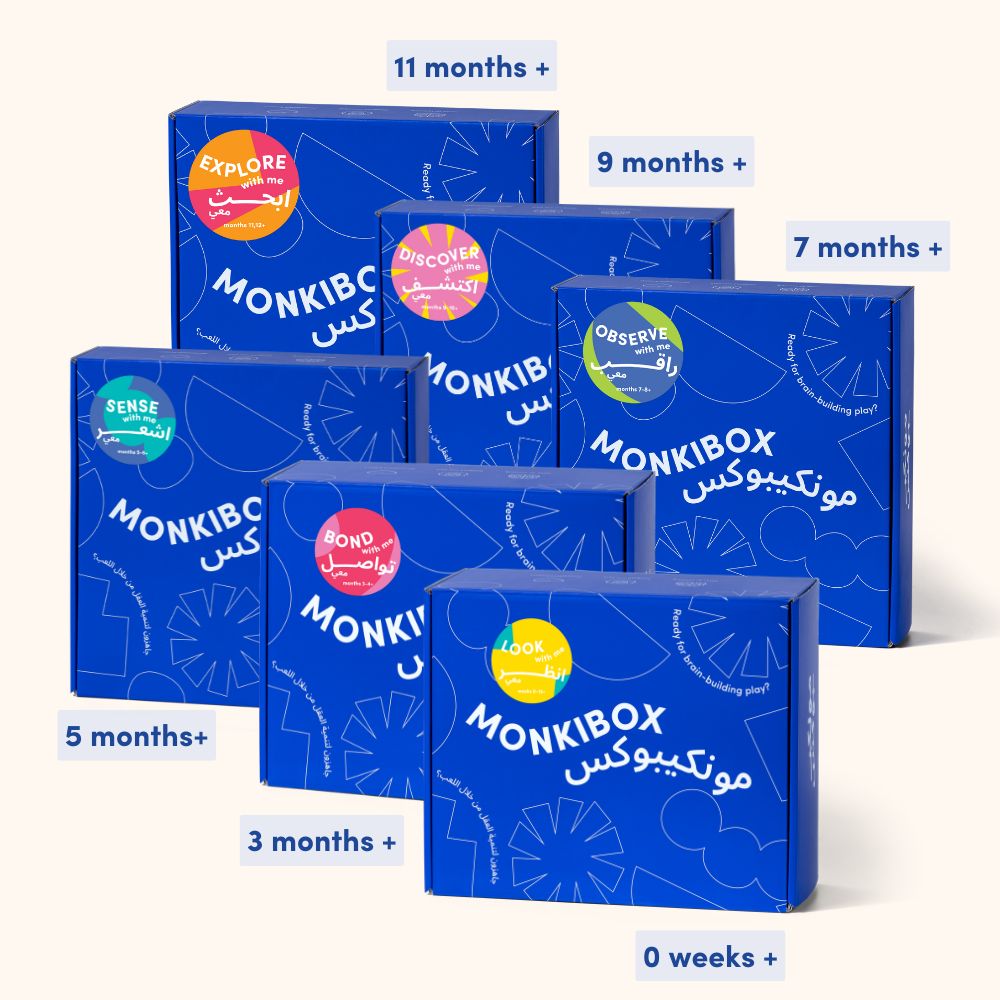At first, a mirror is simply a bright and shiny object your baby enjoys looking at, but as their vision and focus improve, so will their love for faces.
Mirrors foster curiosity, help develop social skills and even enhance cognitive development. In addition, babies love seeing other babies, including themselves. Nurturing these skills early on is key to developing your baby's social-emotional skills.
Mirror play is also an excellent opportunity to develop their vocabulary. Say the names of different body parts you see in the mirror and point to them. If your baby is babbling in front of the mirror, he is most likely having a conversation with the baby he sees reflected, so join in the conversation!
How to play:
- During tummy time, your baby may reach out to touch the "baby" in the mirror.
- Help your baby understand what he sees; "Look at the baby smiling" or "Touch the baby's cheek." These actions will encourage self-awareness and introduce new words. Describing their and your facial expressions as they look at your or their face helps them identify the feelings of others - the beginnings of empathy.
- A mirror is also a great way for your baby to practice visual tracking. Make silly faces at your baby in the mirror and see if your baby will imitate you.
-
Torticollis, or a preference to look to one side only, is commonly found in babies. Encourage them to look left and right equally by placing a mirror on one side and then the other. Placing a mirror next to your baby's changing table is a great way to incorporate some practice into your daily routine.

Start the development journey with MonkiBox. Montessori-inspired toys designed to give your child the best start.





